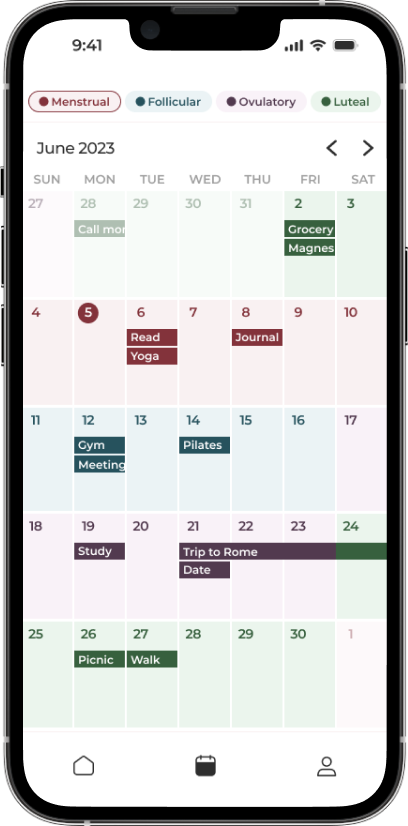Life Coaching for Navigating Major Life Transitions

Life is a journey marked by numerous transitions, both expected and unexpected. These transitions can be transformative and define the course of our lives. Whether it’s starting a new job, entering a new phase of education, getting married, having children, or facing loss and grief, major life transitions can be both exhilarating and daunting. Life coaching offers invaluable support and guidance to individuals navigating these pivotal moments. In this article, we will explore the most common life transitions, strategies for effectively navigating them, and the vital role that a life coach plays in providing assistance and empowerment.
Most Common Life Transitions
Major life transitions are significant shifts that can have a profound impact on various aspects of our lives. While each person’s journey is unique, some of the most common life transitions include:
1. Career Transitions
Switching careers, starting a new job, or pursuing further education can be exciting but also challenging, involving changes in routine, environment, and responsibilities.
2. Marriage and Family Life
Getting married, becoming a parent, or blending families involves adapting to new roles, responsibilities, and dynamics.
3. Relocation
Moving to a new city or country can be both exhilarating and disorienting, requiring adjustments in terms of culture, lifestyle, and social networks.
4. Loss and Grief
Coping with the loss of a loved one, a divorce, or the end of a significant relationship can be emotionally overwhelming and necessitate a period of mourning and healing.

Check out the Vision to Action Planner for only 6$
More info5. Retirement
Transitioning into retirement marks a shift from a structured work life to a new phase that requires redefining purpose, activities, and routines.
6. Health Challenges
Dealing with health issues, whether personal or within the family, often involves adapting to changes in lifestyle, daily routines, and support systems.
7. Empty Nest Syndrome
When children leave home, parents often experience a significant shift in their roles and may need to redefine their identities and priorities.
Strategies for Navigating Major Life Transitions
Successfully navigating major life transitions requires a combination of self-awareness, resilience, and proactive planning. Here are some strategies to help you embrace change with confidence:
1. Self-Reflection
Take time to reflect on your values, goals, and aspirations. Understanding what truly matters to you will guide your decisions during the transition.
2. Seek Support
Reach out to friends, family, or support groups who have experienced similar transitions. Their insights and experiences can provide valuable guidance and comfort.
3. Set Realistic Expectations
Recognize that major transitions often involve challenges and setbacks. Setting realistic expectations and being patient with yourself can reduce stress.
4. Develop Coping Strategies
Identify healthy coping mechanisms, such as mindfulness, exercise, or journaling, to manage stress and anxiety during the transition.
5. Create a Plan
Establish clear goals and an action plan to help you navigate the transition effectively. Break down larger tasks into smaller, manageable steps.
6. Embrace Change
Accept that change is a natural part of life. Embrace the opportunities and growth that transitions can bring.
7. Foster Resilience
Cultivate resilience by focusing on adaptability, problem-solving, and a positive outlook. View challenges as opportunities for personal growth.
8. Self-Care
Prioritize self-care to ensure your physical and emotional well-being. Adequate sleep, nutrition, and relaxation are essential.
Quiz: What Is Blocking Your Success?
This quick quiz will help you figure out which mental or behavioral pattern might be holding you back from achieving your full potential. Identifying your specific success blocker is the first step toward breaking through to new levels of achievement and fulfillment.
Read each question and choose the answer that feels most true to your situation.
No email or payment is required to complete the quiz and receive your personalized insights.
Once you have your primary success blocker, you have clarity about what’s been holding you back. This awareness is powerful—many people spend years struggling without understanding the specific pattern that’s limiting their progress.
Remember, these patterns aren’t permanent character traits but rather habitual ways of thinking and behaving that can be changed with the right guidance and practice.
If you’re ready to break through your specific blocker and achieve the success you know you’re capable of, send me an email to try out a coaching session. Your breakthrough awaits!
How a Life Coach Provides Support
Life coaches are trained professionals who specialize in helping individuals navigate major life transitions and achieve their goals. Here’s how a life coach can provide valuable support during these transformative moments:
1. Clarifying Goals and Values
Coaches assist clients in clarifying their goals and values, ensuring that their decisions align with their authentic selves.
Individuals often face uncertainty, anxiety, and a sense of lost direction. A life coach can serve as a guiding light, helping individuals reflect upon their core values and aspirations, thus offering clarity in the midst of change. By aligning newfound or evolving goals with these values, individuals can make decisions that resonate with their authentic selves, reducing the risk of regret or dissatisfaction later on. Additionally, a life coach can assist in setting specific, achievable objectives that provide a sense of purpose during times of transition. This clarity of purpose and direction becomes a valuable anchor, helping individuals navigate the challenges and uncertainties that come with major life changes, ultimately leading to a smoother and more fulfilling transition.
2. Creating a Vision
Life coaches help clients envision their desired outcomes and create a roadmap to reach those goals.
These pivotal moments often involve significant shifts in personal and professional circumstances, leading to feelings of disorientation and anxiety. A life coach can provide invaluable guidance in helping individuals articulate a clear and inspiring vision for their future, both during and after the transition. This vision serves as a beacon, offering a sense of purpose and direction during times of change. It helps individuals focus on what truly matters to them and acts as a source of motivation and resilience when faced with challenges. Moreover, crafting a vision with a life coach allows individuals to set intentional goals that align with their aspirations, ensuring that the transition becomes a meaningful and transformative journey rather than a period of uncertainty. In essence, creating a vision with a life coach provides the necessary clarity and motivation to navigate major life transitions successfully.
3. Overcoming Obstacles
Coaches work with clients to identify potential obstacles and develop strategies to overcome them.
These transitions often come with a host of challenges, such as uncertainty, fear, and self-doubt. A life coach provides invaluable support in identifying, understanding, and surmounting these obstacles. They offer a fresh perspective, tailored strategies, and emotional encouragement, helping individuals build the resilience and confidence needed to face adversity head-on. Additionally, a life coach can help individuals anticipate potential roadblocks and devise proactive solutions, making the transition smoother and less daunting. By working closely with a life coach to overcome obstacles, individuals gain the tools and mindset necessary to not only survive but thrive during major life transitions, ultimately leading to personal growth and a more successful transition experience.
4. Accountability and Motivation
Coaches provide accountability and motivation, helping clients stay on track and committed to their goals.
Major life transitions transitions often involve a departure from the familiar and a leap into the unknown, which can lead to anxiety and hesitation. A life coach serves as a consistent source of encouragement and accountability, ensuring individuals stay on track and take proactive steps toward their goals during these uncertain times. Their support helps maintain motivation, providing the extra push needed to tackle challenges and maintain momentum. With regular check-ins and guidance, individuals are less likely to become overwhelmed or lose focus during major life transitions. This partnership with a life coach fosters a sense of responsibility and purpose, empowering individuals to confidently navigate the transition, adapt to change, and ultimately achieve their desired outcomes with determination and resilience.
5. Emotional Support
Coaches offer emotional support and a non-judgmental space for clients to express their feelings and concerns.
These significant changes can be emotionally taxing, often triggering feelings of uncertainty, stress, and vulnerability. A life coach provides a safe and nonjudgmental space for individuals to express their fears, doubts, and anxieties, helping them process their emotions constructively. Through active listening and empathetic guidance, a life coach can offer coping strategies, resilience-building techniques, and emotional reassurance that empower individuals to face their feelings with courage and resilience. This emotional support not only helps individuals navigate the ups and downs of a major life transition but also aids in building the mental and emotional strength required to adapt, grow, and thrive in the face of change, ultimately leading to a more successful and fulfilling transition experience.
6. Decision-Making
Coaches assist clients in making informed decisions by helping them weigh the pros and cons, explore options, and consider the long-term impact.
These pivotal moments often require individuals to make significant choices that can shape their future. A life coach serves as a trusted advisor, helping individuals clarify their values, assess their options, and weigh the pros and cons of different paths. They offer a structured and objective approach to decision-making, reducing the influence of emotional biases and uncertainty. With their guidance, individuals can make informed choices that align with their goals and values, mitigating the risk of making hasty or regrettable decisions during times of transition. The support of a life coach ensures that decisions are well-considered, empowering individuals to confidently navigate their major life transitions with a clear sense of direction and purpose.
7. Self-Care and Resilience
Coaches guide clients in prioritizing self-care and developing resilience, ensuring they navigate the transition with well-being and strength.
Self-care and resilience, guided by a life coach, are essential components for successfully navigating major life transitions. These transitions often come with increased stress, uncertainty, and demands on one’s emotional and mental well-being. A life coach can help individuals prioritize self-care practices, ensuring they maintain a strong foundation of physical and emotional health throughout the transition. Additionally, a life coach assists in building resilience, equipping individuals with the tools to bounce back from setbacks and adapt to change effectively. This support fosters emotional strength and mental fortitude, enabling individuals to withstand the challenges that may arise during the transition process. By emphasizing self-care and resilience, individuals are better equipped to not only cope with the demands of major life transitions but also emerge from them with newfound strength and personal growth, ultimately leading to a more positive and successful transition experience.
8. Adapting to Change
Coaches help clients adapt to change by fostering adaptability and a growth mindset.
Life transitions often bring about profound shifts in circumstances, roles, and routines, which can be challenging to navigate. A life coach plays a crucial role in helping individuals embrace change and develop the flexibility needed to thrive amidst uncertainty. They provide strategies, tools, and coping mechanisms to ease the transition process, encouraging individuals to view change as an opportunity for growth rather than a threat. With their guidance, individuals can learn to manage stress, overcome resistance, and cultivate a mindset that welcomes and embraces change. This adaptive capacity not only facilitates a smoother transition but also empowers individuals to capitalize on the transformative potential of major life changes, ultimately leading to personal growth and success.
Conclusion
Major life transitions are opportunities for growth, self-discovery, and transformation. While they can be challenging, they also offer the prospect of creating a more fulfilling and authentic life. Navigating these transitions successfully requires a combination of self-awareness, resilience, and support.
Life coaching serves as a valuable resource for individuals embarking on these journeys. By providing guidance, support, and accountability, life coaches help clients clarify their goals, overcome obstacles, and navigate transitions with confidence and grace. Remember, major life transitions are not about avoiding change but embracing it and using it as a catalyst for personal growth and a brighter future. With the guidance of a skilled life coach, individuals can confidently navigate life’s crossroads and emerge stronger, wiser, and more empowered.
Still waiting for the 'perfect time'?
Email me what you'd do if you stopped making excuses. We'll work backwards from there.
Let's startRecent posts
-
The Complete Guide to Becoming a High Achiever
Read blog -
How To Make a Positive Impact in Your Community
Read blog -
What Is the “Winter Arc” Challenge?
Read blog -
What Is "the Great Lock-In" and Should You Try It?
Read blog -
What Are the 75 Hard and Soft Challenges?
Read blog -
How to Validate Yourself
Read blog

The App Made To Sync Your Lifestyle to Your Menstrual Cycle.
A solution for women who are looking to keep track of what they sync to their cycles, such as fitness, diet, etc. by adding it to a calendar that also predict their phases.
Learn more





Comment